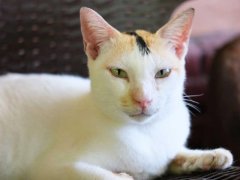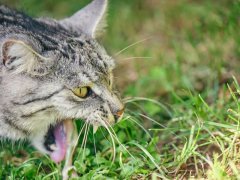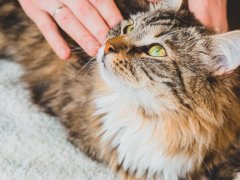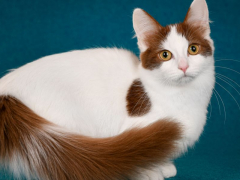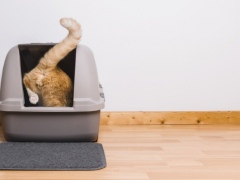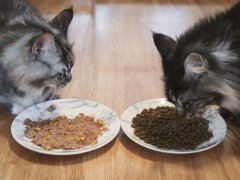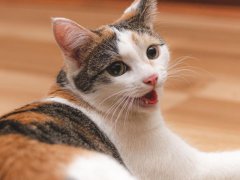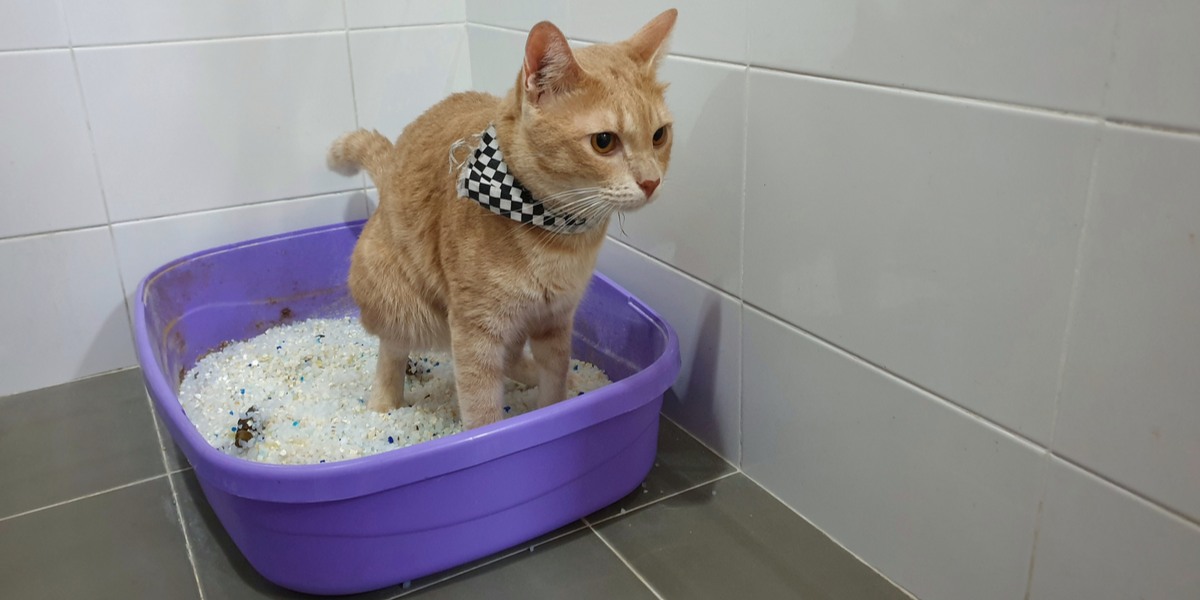
One of the most common reasons cats are seen by a DVM is diarrhea and loose stools. Diarrhea can happen all of a sudden, or it can involve chronically abnormal bowel movements. There are many causes of diarrhea, and consequently, many ways to to treat it.
Diarrhea can be painful, and it can indicate underlying issues, like cancer, inflammatory bowel disease, intestinal parasites, or problems with your cat’s diet. Fortunately, most cases of diarrhea in cats can be resolved with the aid of your local veterinarian.
What Causes Diarrhea in Cats?
Diarrhea is caused by an osmotic problem, a gastrointestinal motility problem, a permeability problem, or a secretory problem. Osmotic diarrhea occurs when something causes the intestinal tract to absorb too much water into feces. Diarrhea associated with motility problems occurs when the intestines contract too much, or too little.
GI ulcers or leaky gut syndrome, can cause intestinal permeability problems that result in diarrhea. Secretory diarrhea occurs when the gastrointestinal tract is exposed to toxins from bacterial infections. Sometimes, a cat has more than one cause of diarrhea at the same time.
Common causes of diarrhea, all types, can include:
- Dietary indiscretion (the cat ate something that caused diarrhea, like garbage or spoiled food)
- Feeding a new food to your cat
- Ingredient sensitivity (most common ingredient sensitivities in cats include chicken, beef, eggs, dairy, and soy)
- Inflammatory bowel disease (ibd)
- Stress
- Gastrointestinal cancer, like lymphoma
- Metabolic and hormonal diseases, like addison’s disease, hyperthyroidism in older cats, liver disease, kidney disease, and pancreatic disease
- Obstruction of the intestinal tract with either food or a foreign body
- Viral infections
- Bacterial infections
- Intestinal parasites, like coccidia, giardia, or roundworms
- Fungal infections, caused by eating old food that is contaminated by fungal spores
- Drugs or toxins
Diarrhea in cats can either be acute (omg it happened all of a sudden!), chronic (been going on for a while), or intermittent (starts and stops). Diarrhea is further classified into large bowel or small bowel diarrhea.
Large bowel diarrhea, seen in cats with colitis, involves straining to poop and small amounts of diarrhea that may have mucus or blood. Small bowel diarrhea involves larger amounts of feces, no straining, can be tarry, may cause a cat to lose weight. Both small bowel and large bowel diarrhea may cause loss of appetite.
How Does Diarrhea Affect the Health of a Cat?
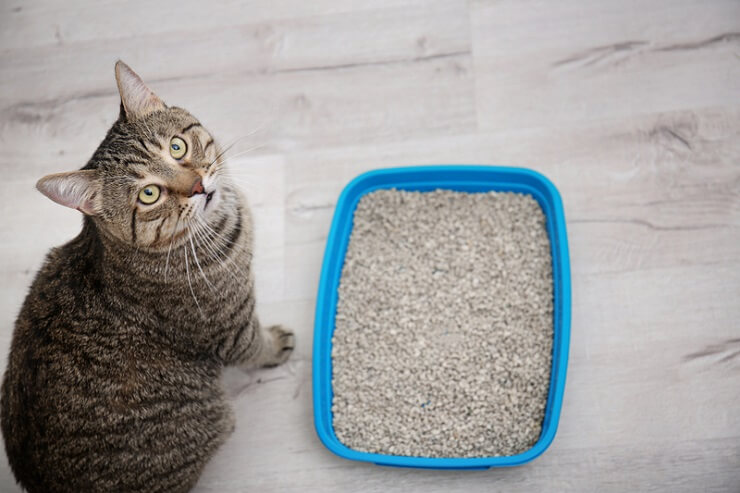
Diarrhea can make a cat feel unwell, and it can also cause serious problems in the body.
In addition to making a cat feel miserable and yucky, diarrhea causes lots of problems in lots of body systems in addition to the digestive system. Severe diarrhea causes dehydration and electrolyte imbalances that can negatively impact the cardiovascular system, the endocrine system, the musculoskeletal system, and a cat’s overall metabolism.
Furthermore, cats with chronic diarrhea can experience severe weight loss and litter box problems, such as defecating outside the litter box. This puts cats at risk of losing their home or even their life to euthanasia in severe cases.
How Is the Cause of Diarrhea Diagnosed?
Cats with unresolved or bloody diarrhea require a complete physical examination, an oral history from the owner, and laboratory testing of a fecal sample to determine the cause of diarrhea.
The type of tests ordered depend on what cause of diarrhea the vet suspects, and may include a fecal flotation, other fecal tests, and blood and urine analysis. Other tests may include x-rays, abdominal ultrasound, tests for pancreatitis, fecal cultures, and biopsy of the intestines if inflammatory bowel disease or cancer is suspected.
How Is Diarrhea Treated?
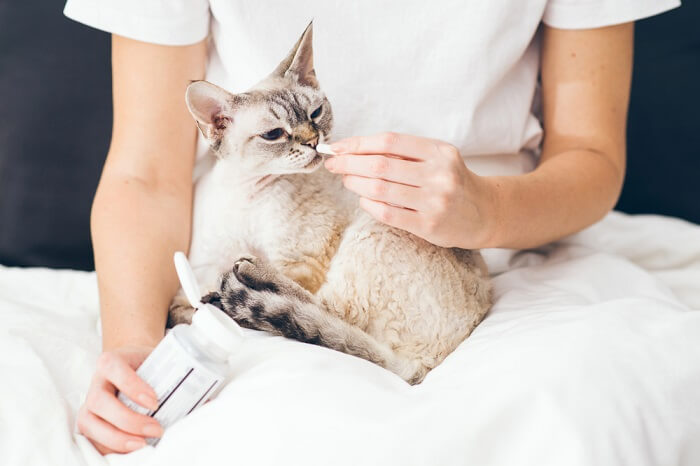
Once you’ve identified that your cat has diarrhea, the appropriate treatment can help to stop both the diarrhea and its underlying cause.
Most cats with acute diarrhea usually only have one episode of diarrhea, are fine afterwards and require no treatment. If your cat does number 2 outside you may not even notice that your cat had diarrhea!
Otherwise, treatment of diarrhea depends on several factors, including the cause of diarrhea and how severe the diarrhea is. Cats with mild diarrhea may be managed with only feeding a fat-restricted, easily digested food, either homecooked chicken and rice or a therapeutic diet until normal stools are seen.
If this doesn’t clear up the problem within a day, then your vet can prescribe probiotics that can be mixed into your cat’s food and antidiarrheal medicine.
Otherwise, diarrhea is managed by stopping the diarrhea and addressing the underlying cause. If your vet suspects that your cat’s diarrhea is due to intestinal parasites, then a dewormer will be prescribed. If your cat has diarrhea due to IBD, then your vet will talk to your about steroids and dietary management.
If your cat has a bacterial infection, then antibiotics will be prescribed. If your vet suspects that the diarrhea is due to an food intolerances or food allergy, then she will likely ask you to switch your cat to a hypoallergenic diet or a novel protein diet for a food trial, and so on and so forth.
Also Read: The Best Cat Foods for Diarrhea
If your cat is severely dehydrated, has hemorrhagic diarrhea, or is otherwise very sick, then your cat may need to be hospitalized to treat diarrhea. If this occurs, then your cat will likely have an intravenous catheter placed, receive fluids and medications intravenously, and will be continuously monitored by hospital personnel.
How Can I Prevent Diarrhea in My Cat?

The best way to ensure that your cat does not develop diarrhea is to limit your cat’s access to garbage or foods other than their regular diet, and try not to switch your cat’s food around. Instead, try to be consistent and feed your cat one brand of high quality cat food.
Have your kitten properly dewormed and vaccinated, and take your adult cats and fresh fecal samples in to the vet yearly for examination to check for overall wellness and intestinal parasites.
Most cases of diarrhea in cats resolve spontaneously without treatment, however, if your cat is having bowel problems, do not hesitate to contact your local veterinarian – she is there to help.
